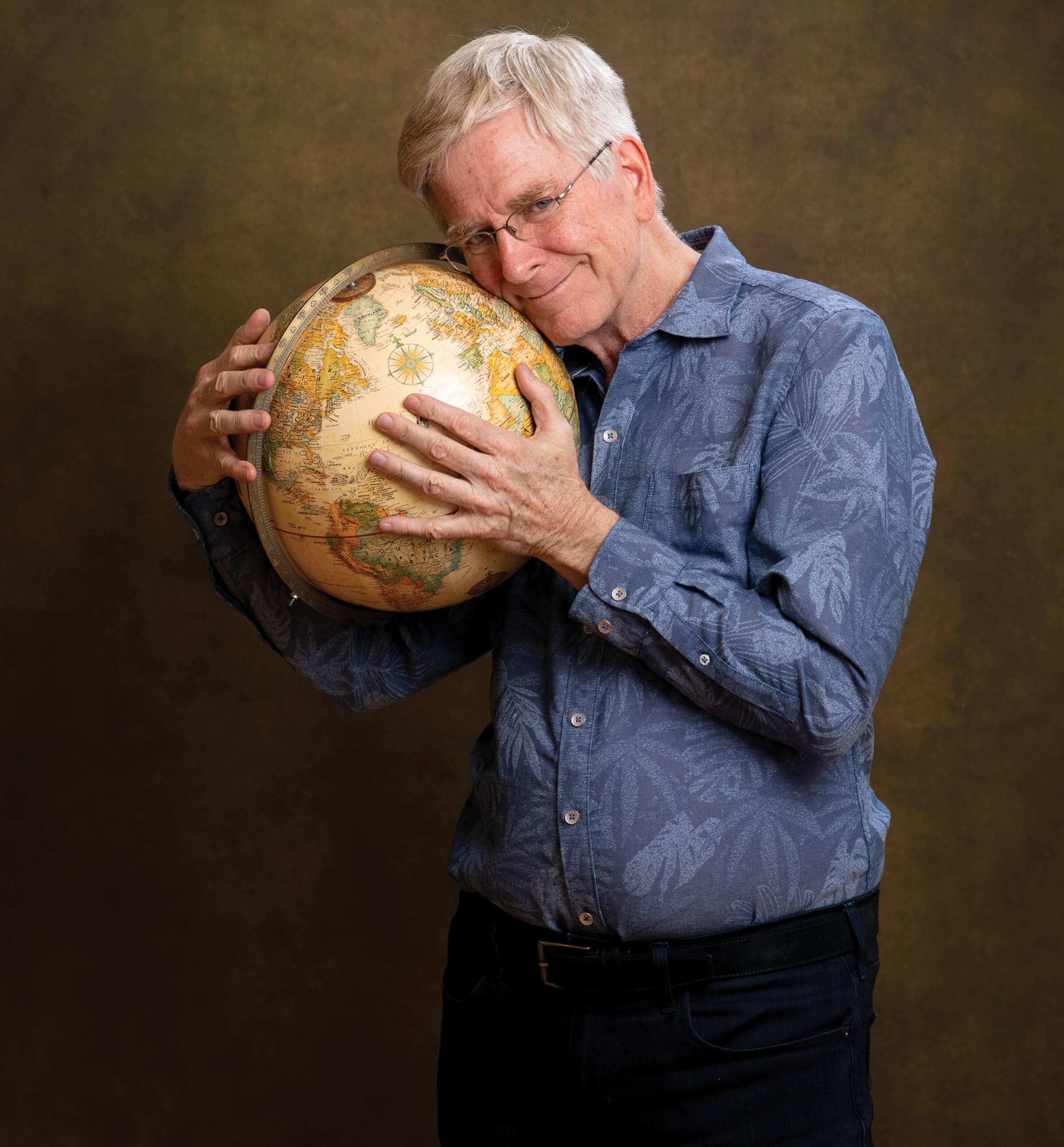Q&A Rick Steves
“THE MARK OF GOOD TRAVEL IS TO EXPERIENCE CULTURE SHOCK.”
—TRAVEL GURU RICK STEVES, 69, DESCRIBES HOW HE FIRST STEPPED OUTSIDE HIS COMFORT ZONE—AND HOW WE CAN EXIT OURS

You had a pretty wild trip back in 1978. Now you’ve turned your journal from that adventure into a book, On the Hippie Trail. Why now?
Back then, when I was in my early 20s, I was a piano teacher, not a professional travel writer; I wanted to document the trip just for myself. Then, when I looked at it a few years ago, I thought, This could be a fun, historic, inspirational adventure tale for travelers.
What made that trip so special?
I was green, I was afraid, I was thrilled. I was out after dark. I was beyond the reach of my parents. I had no money. There was no good guidebook information back then. There was no safety net. It was truly an adventure, and it was endlessly entertaining. When you’re in Kabul or in Kathmandu—all you’ve got to do is walk, and it’s just a montage of memories and experiences and characters. Today, I don’t leave home without having my accommodations all reserved and everything very carefully organized. But back then we were just going behind the dark side of the moon.
How did the journey lead you toward a career in travel?
I just thought, This travel really has a value. I came home with a strong feeling that the world is filled with good people. It’s filled with joy, it’s filled with love, it’s filled with diversity that we should not be afraid of, but that we should embrace and celebrate. And you won’t know that unless you get out there and see it for yourself.
Where is your favorite place to travel?
India. I love it because it rearranges my cultural furniture. It humbles me.
How so?
You know, to be settling down in Kashmir in a houseboat … then sitting on the rooftop of your houseboat, surrounded by the Himalayan Mountains and savoring a sunset … [or] sitting sidesaddle on an elephant, and being so giddy about being on an elephant in a monsoon rainfall that you don’t realize the elephant’s coming into the concrete dock and that the thunderous, mighty crushing beast is about to demolish your legs between his side and that concrete pier. And then I realized, Hey, snap out of this. You’re having too much fun. Pull your legs up. That was quite an experience.
Europe is inundated with tourists these days. How can we visit without being lost in the crowds?
You know, I don’t say, “Don’t go to Edinburgh,” but I would say it’s a really crowded, touristy place. But Glasgow is 45 minutes away by train and it has no crowds. It’s more real. It’s got amazing street art and edgy restaurants and feistiness. You can go to Glasgow rather than spend a third day in Edinburgh. We’re all going to go to Lisbon. What about Porto? Or when I go to Athens, I want to see the Acropolis, but I don’t go there when 90 percent of the tourists are there—between 10 and 4. I go there at the end of the day when it’s cool, the sun is low and everybody’s leaving.
What advice do you have for older travelers?
I’ll be 70 years old the next time I go to Europe, and the most demanding and grueling thing about travel for an older person is the heat and the crowds of summer. So shoulder season in spring and fall, and deep into shoulder season, early spring and late fall—that’s my favorite time to go. The days are shorter and it’s not so sunny, that’s true, but you’re not having the brutal heat. Europeans are fond of saying there’s no bad weather, just inappropriate clothing. I’m a big practitioner of that philosophy.
Is there something you wish everyone would understand about travel?
That the world is an inviting place, the world is safe. I don’t know where people got this, “Have a safe trip” business. There’s no question about it, today, statistically, traveling is safer than it was 40 years ago, when people said “bon voyage”! I still say bon voyage.
You announced your prostate cancer diagnosis last year. How are you doing?
I’m looking at it like a journey. It’s just a trip I didn’t want to sign up for, and I don’t know the language, and I don’t know exactly where it’s going. But I’m learning a lot, and I’m very hopeful. I had the robotic prostate surgery several months ago, and the surgery went well. It occurred to me a lot of people are a little bit secretive or embarrassed about their cancer, but I feel a need to share it because it’s really healthy for people to be able to let their loved ones and their community know what they’re going through. And when you do share it, you realize, Man, I’m not alone.
What’s next for you?
We’re doing a [public television] series on the four greatest cities in Europe—cities that each deserve a one-week vacation. Predictably, they’re Paris, London, Rome and—maybe not predictably—Istanbul. So I’ll be going to Europe, as I always do, this year. You know, when you get cancer, it’s just a reminder of your mortality. You want to embrace every year that you’ve got on this planet.
Interview by Christina Ianzito
DANIEL BERMAN